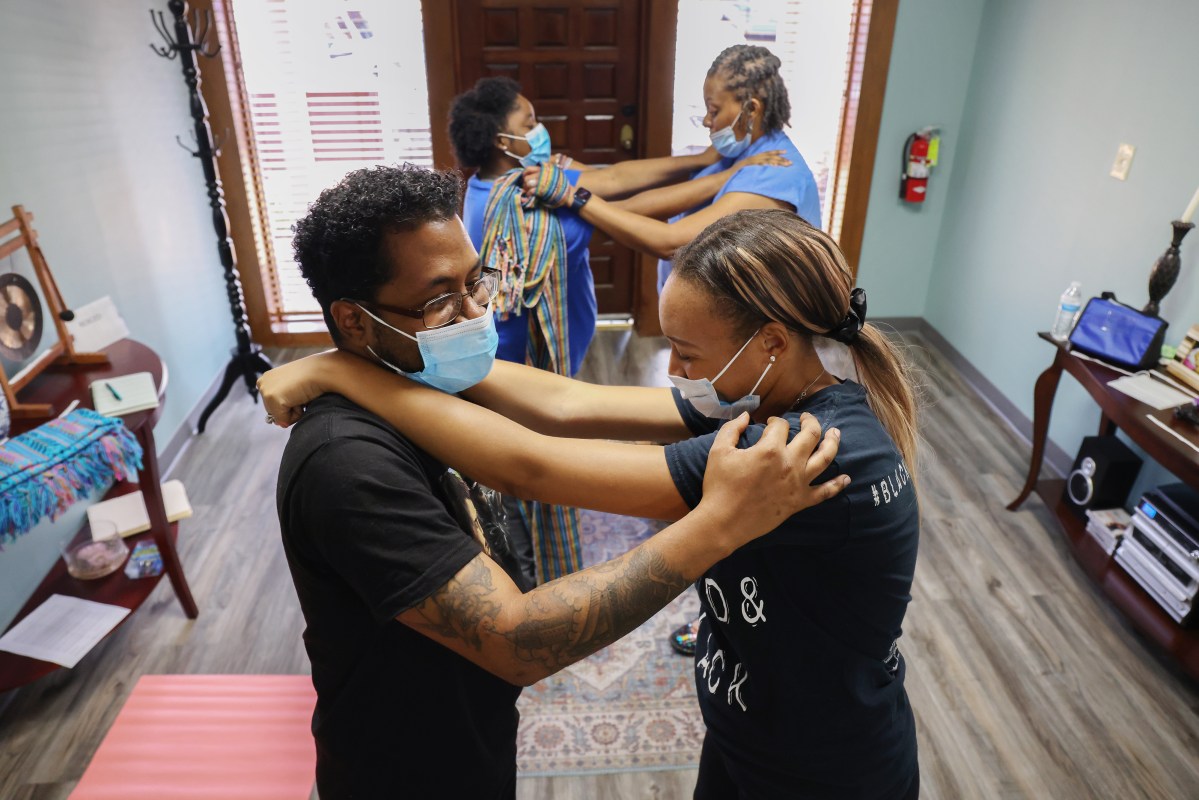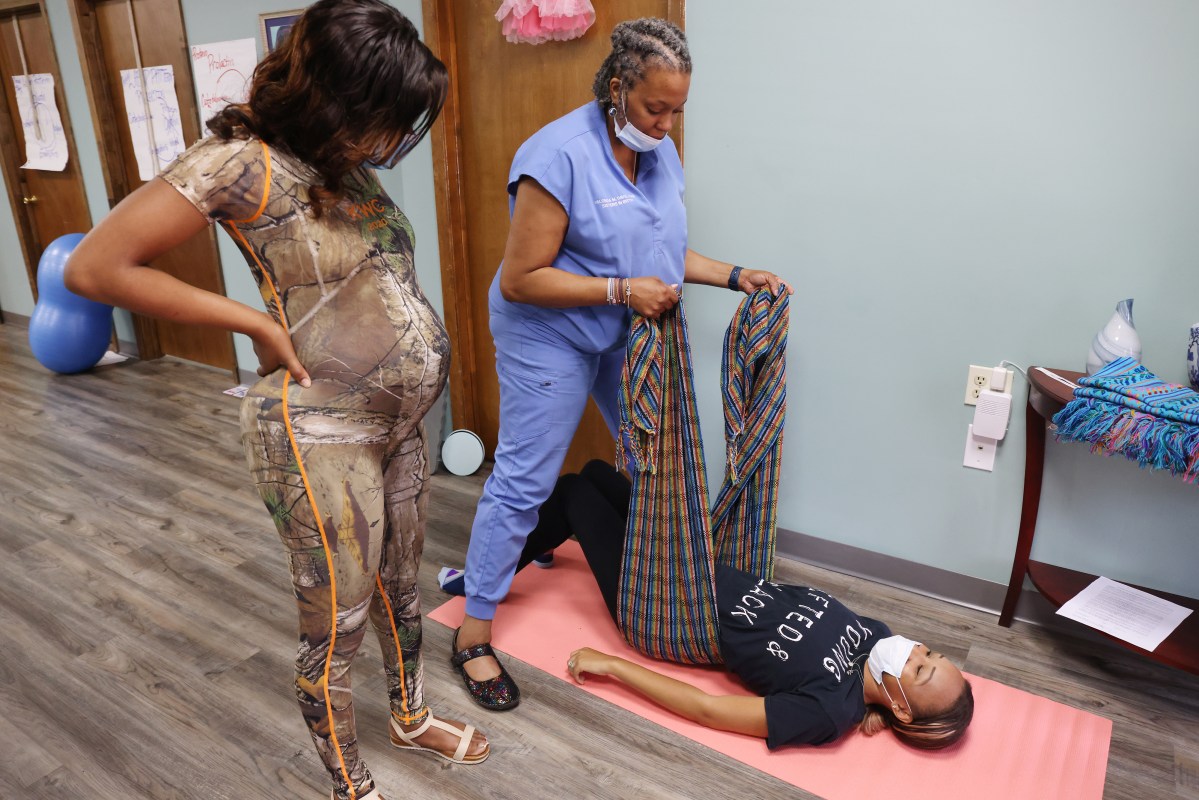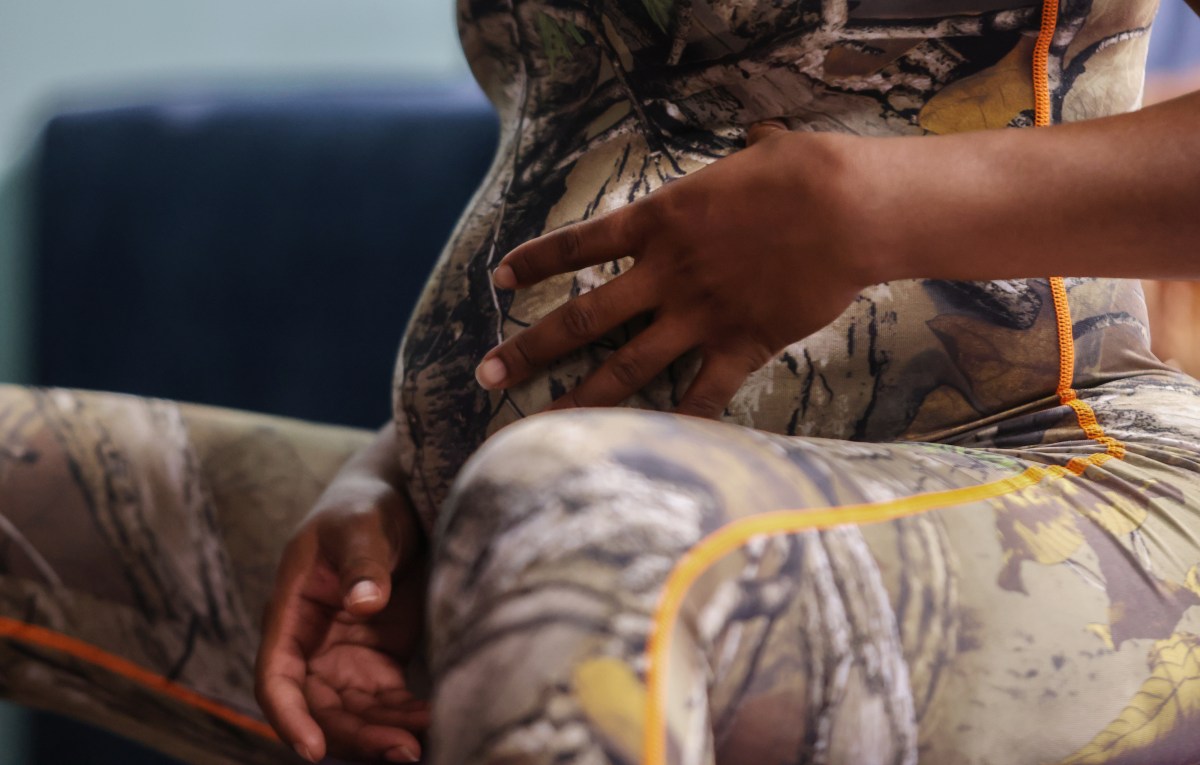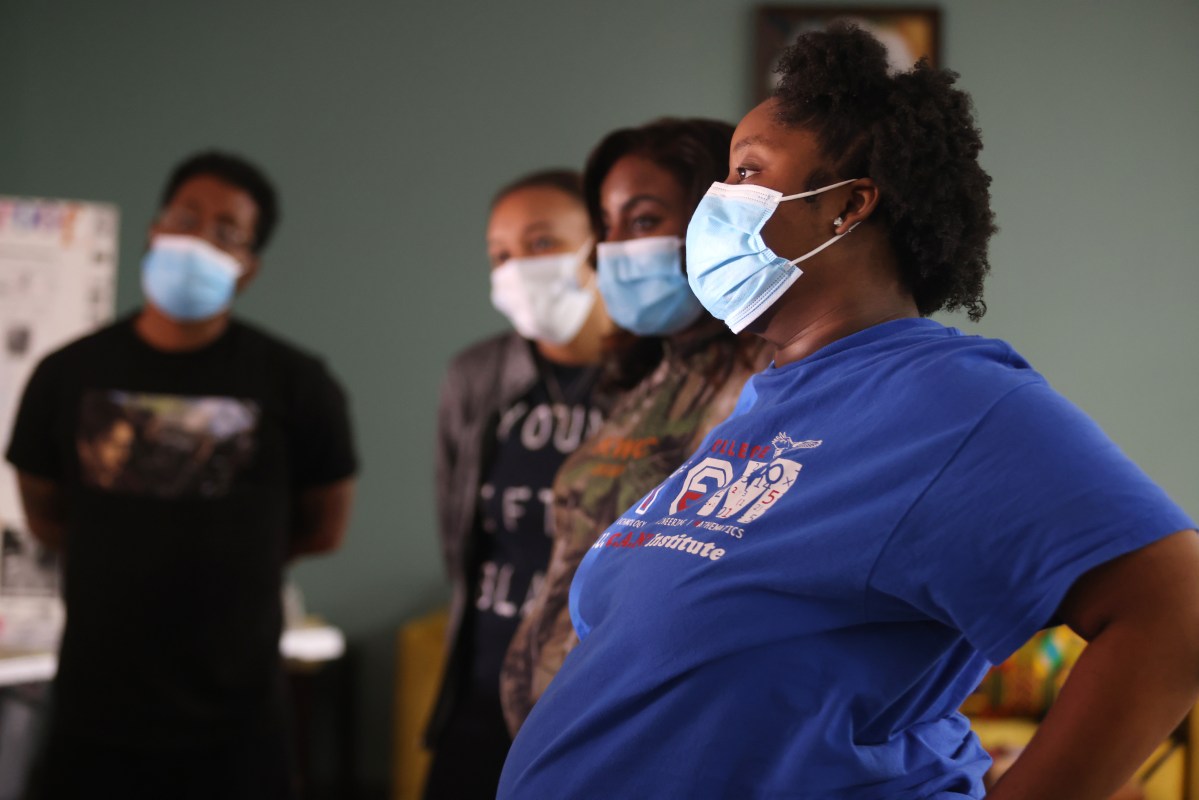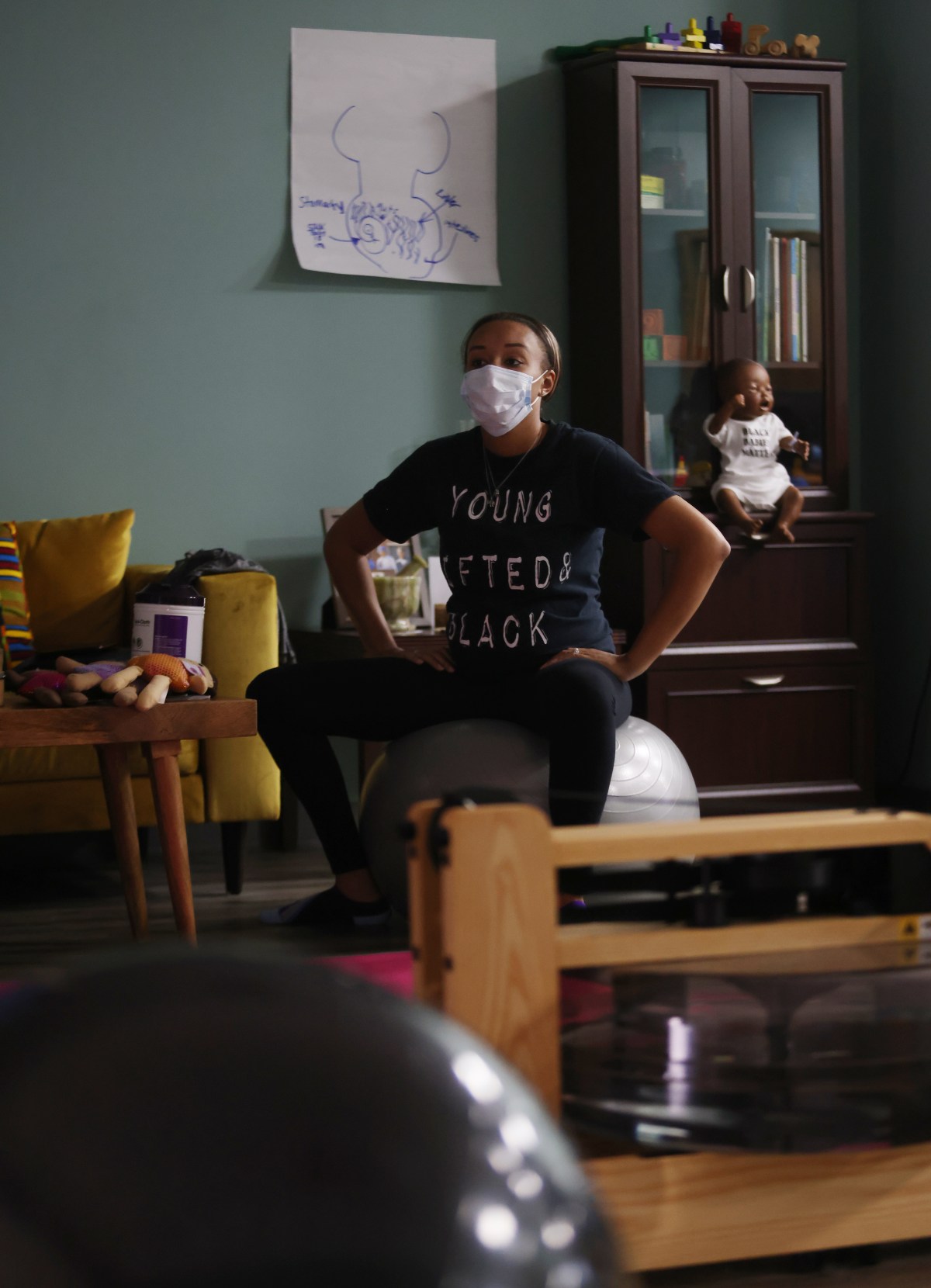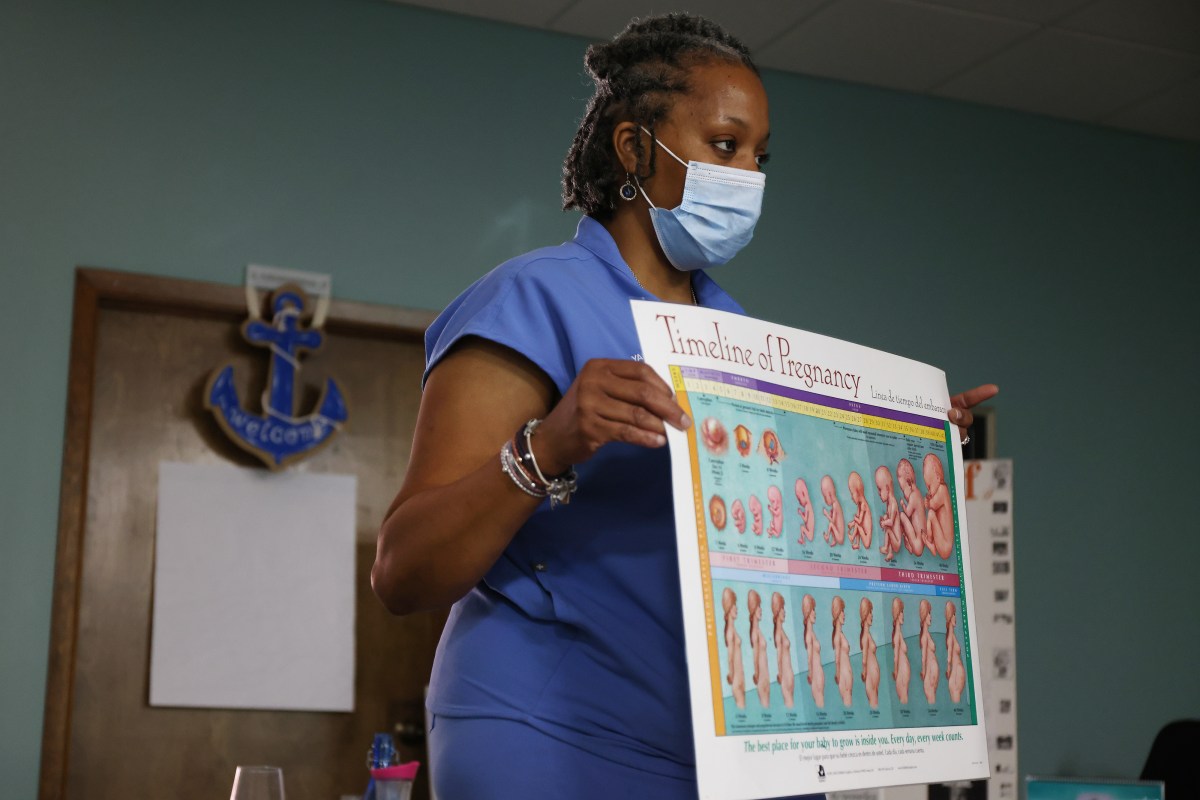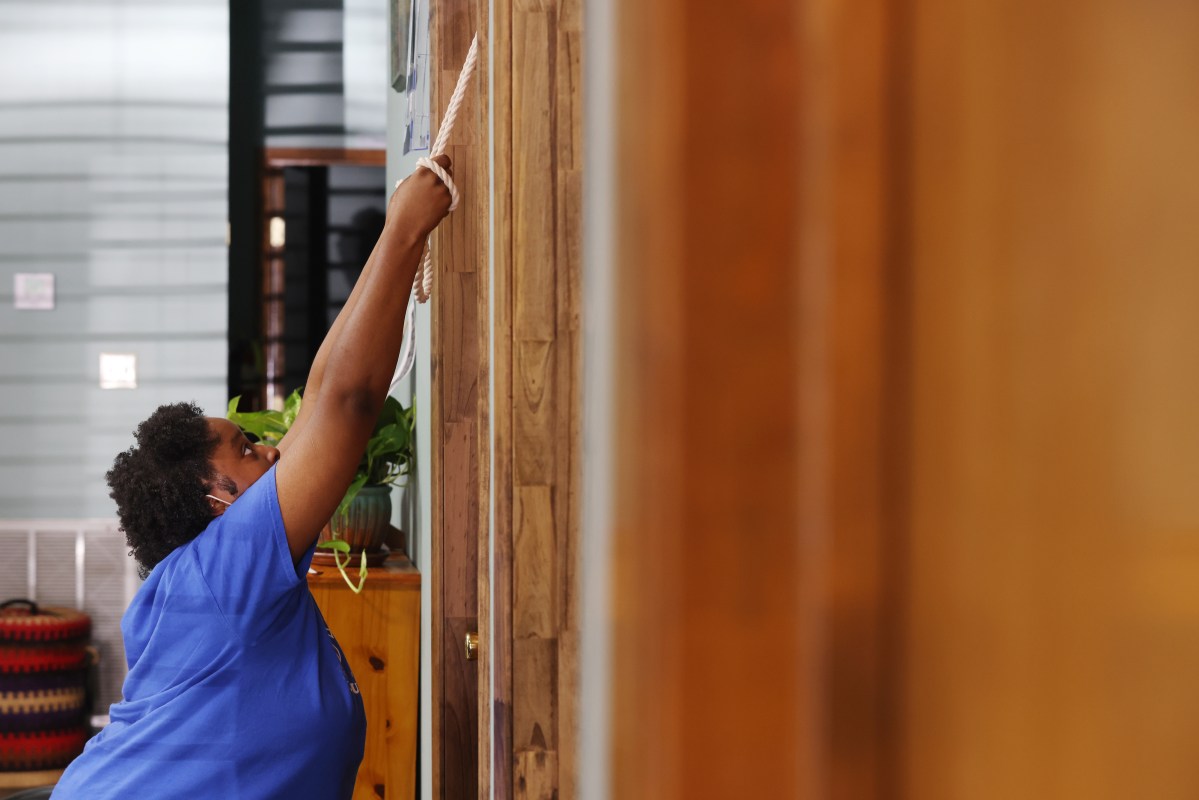Mississippi News
Nonprofit aims to open state’s first birth center
Nonprofit aims to open Mississippi’s first birth center
After giving birth to her first child in a hospital in January 2019, Jasmine Williams knew she never wanted to go through that experience again.
The constant flow of doctors and nurses entering and leaving her room, the needles and beeping machines only added extra stress to a situation that’s intense enough on its own, she said.
The worst part for Williams was the epidural, where anesthetic is injected into the space around the spinal nerves in the lower back to block the pain from contractions. The procedure numbed Williams and made her feel like she was just a passenger for her own delivery.
“I didn’t necessarily know what the doctors and nurses were down there doing,” Williams, who lives in Jackson, said. “I couldn’t feel anything, and that scared me.”
When she got pregnant again later that year, Williams decided to look into another option: home birth. She was living in Georgia at the time and contacted Meka Hall, a local midwife, and was told she could safely deliver a baby from the comfort of her home and avoid the negative experiences she’d had with her first birth. It’s an option she wished known about the first time around.
“Everything was so new, and the only thing that I knew to do was to go to the hospital,” Wiliams said.
The relationship Williams and her husband, Jabriel, developed with Hall was much closer than any they’d had with hospital staff during her first delivery.
Williams also appreciated the ability to have a water birth, where at least part of a mother’s labor, delivery or both occur in a birthing pool filled with warm water. Williams says it helped greatly with the pain of cramping caused by contractions.
“I was a lot more present,” Williams said. “It was a lot more intimate. You actually know what’s going on.”
The home birthing experience was much smoother for Williams, and she hasn’t looked back since. After moving back to Mississippi and becoming pregnant with her third child in 2021, Williams decided to enlist the help of the Jackson-based nonprofit public health organization, Sisters in Birth, for her second home birth.
Sisters in Birth (SIB) pairs community health workers with low-income women, primarily Medicaid beneficiaries, to provide support during and after their pregnancies. SIB uses evidence-based practices with the goal of reducing birth disparities in Mississippi.
A community health worker visited Williams at home each week to make sure she was attending all her prenatal care visits, eating well and exercising regularly.
“It was a very big help and kept me on track (for a healthy home birth),” Williams said.
When she gave birth in September 2021, a Mississippi-based midwife helped her through the process while Hall, the Georgia midwife she used before, tuned in via Zoom. The actual delivery only took a few minutes, as compared to an hours-long delivery process for her hospital birth.
Now, Getty Israel, SIB’s founder and program director, wants to expand on the work done by her organization by opening Mississippi’s first birth center. The centers serve women with low-risk pregnancies and act as a compromise between hospital births and home births.
“Women deserve to have an alternative to the hospital setting,” Israel said. “I have patients who said they’re going to deliver at home with or without a midwife. And I have patients who have delivered at home without a provider being there. They did so safely, but they shouldn’t have to.”
The number of birth centers in the United States has more than doubled in the last decade. As of January 2021, there were 400 birth centers across 40 states and the District of Columbia, according to the American Association of Birth Centers. Mississippi is one of the 10 states without one.
“We’re so far behind (in Mississippi). This should have happened 40 years ago,” Yolanda Davis, a community health worker at SIB, said.
If SIB were to open a birth center, the organization would need a transfer agreement with a hospital so that patients could be moved to a hospital setting in the case of an emergency. The group currently has a memorandum of understanding with University of Mississippi Medical Center, a nonbinding agreement that states the two parties intend to form a partnership. Israel says the agreement will be made official if SIB opens the birth center.
UMMC officials declined to answer questions about the medical community’s perception of home births and birth centers.
Birth centers remain controversial due to conflicting accounts of safety. Not yet peer-reviewed research presented at The American College of Obstetricians and Gynecologists (ACOG) conference in 2021 showed that birth center deliveries are associated with a higher risk of infant death and seizures than hospital births attended by midwives.
On the other hand, a government-financed study in 2012 found that Medicaid beneficiaries who used birth centers saw lower rates of preterm birth, low birthweight and Cesarean deliveries (C-sections) when compared to other Medicaid participants who gave birth.
The lack of regulation around midwifery care in Mississippi also adds risk to births outside of the hospital setting, as anyone can claim to be a midwife, even if they lack formal training and experience. Because of the lack of regulation, midwives who lost their right to practice midwifery in other states are free to work in Mississippi.
Mississippi is one of 14 states and the District of Columbia that does not regulate or license direct-entry midwives, who have become credentialed without first becoming a nurse. However, certified nurse-midwives are licensed as advanced practice registered nurses.
Melinda Thigpen, a direct-entry midwife from Bay Springs who has attended an estimated 300 to 400 births since 1999, said that the lack of regulation does present dangers, but that it also grants midwives freedom in how they practice.
“The regulation of midwives in Mississippi would mean that we were able to weed out those who just simply call themselves midwives, but do not have actual formal training … that would be beneficial,” Thigpen said. “But on the flip side, if we as midwives lose our autonomy, then our clients also lose their autonomy. The care that we’re able to give is dictated rather than individualized.”
Though the number of home births has increased in recent years, the vast majority of births still occur in the hospital setting. Of the more than 35,000 births Mississippi recorded in 2020, just 152, or 0.42%, were intended home births, according to CDC data.
Israel is currently looking at land in rural areas of Hinds County to purchase for the center, both because the land itself will be cheap and so the center can qualify as a rural health clinic. This would make it somewhat of an outlier among birth centers, as they often avoid locating in rural, low-income areas due to high out-of-pocket costs and low reimbursement rates from Medicaid and private insurers.
Israel estimates it will cost $3 million to make the center fully operational. That estimate includes $150,000 for land and $1,000,000 to build the center. The remainder will go toward hiring midwives and community health workers. She’s hoping that purchasing the land soon will help with fundraising efforts to get the center built.
“Having a plot of land with a sign that says ‘birth center coming soon’ makes it more real for people,” Israel said.
Israel began publicly fundraising for the birth center after several attempts to get state COVID-19 relief funding failed. State Sen. Albert Butler, D-Port Gibson, read a proposal for funding she submitted to the Legislature and then introduced a bill that would have given Sisters in Birth $1.5 million from the state’s Coronavirus State Fiscal Recovery Funds. The bill died in the appropriations committee.
Efforts to federally fund birth centers have also failed to gain steam. The BABIES Act would require the Centers for Medicare & Medicaid Services (CMS) to establish a prospective payment system (PPS) that would reimburse birth centers for prenatal, perinatal and postpartum care for mothers and infants.
The BABIES Act was introduced both in 2019 and 2021, but never advanced. U.S. Rep. Benny Thompson was the only congressman from Mississippi to co-sponsor the legislation, though Israel says she lobbied the state’s three Republican congressmen to support the bill.
Since the leak of a draft Supreme Court opinion that would overturn Roe v. Wade, there has been an increase in rhetoric among politicians at the state and national levels about the need to increase support for pregnant moms and babies. In Mississippi, the rhetoric has for the most part not been matched by policy proposals.
In March, Speaker of the House Philip Gunn killed legislation that would have extended health care coverage for new moms from 60 days to one year. About 60% of births in Mississippi are covered by Medicaid, one of the highest percentages in the nation.
“Those pro-life legislators, those hypocrites, who want to make sure women don’t have an abortion, but they won’t support something as simple as a birthing center so they can have a healthy birth – what are they talking about?” Israel said. “If we really care about saving the lives of babies, you’d want to give them access to a midwife.”
Mississippi is consistently ranked as one of the worst states to have a baby due to its poor health care system. More children born in Mississippi, per capita, do not live to see their first birthday than anywhere else in the nation. Mississippi’s infant mortality rate is the highest in the nation at 8.27 deaths per 1,000 live births.
The state also has the highest rate in the nation of children living in extreme poverty.
Mississippi mothers die in 33.2 of every 100,000 births — nearly two times higher than the U.S. average. Black moms in the state are three times more likely to die than white moms. Many experts believe Mississippi’s lack of prenatal care contributes greatly to this statistic.
Israel said that the work SIB and other organizations in Mississippi do to tackle birth disparities is undervalued and overlooked by political leaders. The work they’re doing saves taxpayer money, but they get no investment in return.
“When we prevent one premature baby, we’re saving the state a hell of a lot of money,” Israel said.
A premature birth costs $41,610, compared to a full term birth’s $2,830, according to data from University of Mississippi Medical Center.
Two of the organization’s largest goals are reducing the rates of C-sections and labor induction, both of which increase the risk of further birth and recovery complications.
Israel views medically unnecessary inductions of labor as a harmful intervention of a natural process.
“It’s about the doctor’s schedule and not about nature’s schedule,” Israel said.
C-sections can save the lives of mothers and babies during dangerous deliveries caused by conditions such placenta previa, where the opening of the cervix is obstructed, or when a baby is in a breech position. However, C-sections come with greater risks than vaginal births, including a higher risk of death.
Even a relatively uncomplicated C-section comes with a longer and more difficult recovery for mothers than a vaginal birth.
C-section deliveries are thought to be overused in the United States. Since 1985, the World Health Organization has considered the ideal rate for C-section births to be between 10% to 15%. More than 31% of all deliveries in the U.S. were by C-section in 2020 and 25.6% of low-risk pregnancies resulted in a C-section, according to data from the CDC.
The prevalence of C-sections is higher in Mississippi. C-sections were used during 38.5% of births in Mississippi in 2020, giving the state the highest rate in the nation for these deliveries. According to the Mississippi maternal mortality review committee’s 2019 report, 65%of women who died after giving birth delivered by repeat C-section.
In Israel’s view, the overuse of C-section deliveries is motivated by financial incentives and expediency.
“C-sections are a cash cow for hospitals,” Israel said. “With induction and C-sections, doctors often do not have a discussion with black women about this. They don’t engage them and allow them to help make that medical decision. They just decide for them.”
According to a report released in May 2020 by Health Care Cost Institute, average spending for a C-section birth was nearly $5,000 higher than spending for a vaginal birth for people with employer-sponsored insurance. Physicians are paid on average 15% more for a C-section than a vaginal delivery.
Studies have also shown that during the work week, non-medical factors appear to affect the time of deliveries. C-sections spike around morning, lunchtime, and the end of the day, which some see as evidence that doctor’s decisions are motivated, at least in part, by scheduling conflicts rather than purely medical considerations.
Thigpen says that popular misconceptions about what a midwife does is a factor in their work being undervalued by politicians and the general public.
“I tell people all the time, they don’t hire me just to blow up a pool, light candles or rub their back,” Thigpen said. “They hire me for the very few times where something does come up that is more concerning, and that’s when I jump in to use the skills that I’ve learned.”
Thigpen also thinks that there’s a fundamental difference between how doctors and midwives view the birthing process. She’s grateful for hospitals and doctors but believes that the medical community needs to do a better job of accepting those differences and working with midwives to help ensure better outcomes, no matter what delivery method a mother chooses.
“The medical community tends to look at birth as a medical event that may occasionally happen naturally,” Thigpen said. “And as a midwife, I look at birth as a natural event that may occasionally need medical help.”
This article first appeared on Mississippi Today and is republished here under a Creative Commons license.
Mississippi News
Ole Miss women get pair of double-doubles and roll to 83-65 March Madness win over Ball State
SUMMARY: Mississippi coach Yolett McPhee-McCuin found solace in returning to a different arena in Waco, Texas, following a disappointing previous tournament experience. The No. 5 seed Ole Miss Rebels redeemed themselves with an 83-65 victory over 12th-seeded Ball State in the NCAA Tournament’s first round. Starr Jacobs led the Rebels with 18 points and 11 rebounds, while Kennedy Todd-Williams and Madison Scott each scored 15 points. Ole Miss dominated rebounding, leading 52-32, and will face fourth-seeded Baylor next. Coach McPhee-McCuin noted the team’s evolution since their last visit and the significance of playing in Texas, where Jacobs feels at home.
The post Ole Miss women get pair of double-doubles and roll to 83-65 March Madness win over Ball State appeared first on www.wjtv.com
Mississippi News
Events happening this weekend in Mississippi: March 21-23
SUMMARY: This weekend (March 21-23), Mississippi offers a range of exciting events. Highlights include Hal’s Marching MALfunction Second Line Stomp and Jessie Robinson’s blues performance in Jackson, as well as the Natchez Food & Wine Festival and the Natchez Little Theatre’s production of *This Side of Crazy*. There are also numerous exhibitions like *Of Salt and Spirit: Black Quilters in the American South* in Jackson and *Gold in the Hills* in Vicksburg. Other events include the 48th Annual Crawfish Classic Tennis Tournament in Hattiesburg, karaoke nights in Laurel, and a variety of family-friendly activities across the state.
The post Events happening this weekend in Mississippi: March 21-23 appeared first on www.wjtv.com
Mississippi News
Events happening this weekend in Mississippi: March 14-16
SUMMARY: This weekend (March 14-16) in Mississippi offers a variety of events. In Jackson, iconic saxophonist Boney James performs at the convention center, while the JXN Food & Wine festival showcases culinary talents. The LeFleur Museum District hosts a “Week of Wonder,” and several exhibitions, including “Of Salt and Spirit,” celebrate Black quilters. Natchez features the Spring Pilgrimage tours, a reenactment of Annie Stewart’s story, and a St. Patrick’s Day celebration. In Hattiesburg, comedian Rob Schneider performs, and various events like a St. Patrick’s Day pub crawl and a talent show will take place throughout the area.
The post Events happening this weekend in Mississippi: March 14-16 appeared first on www.wjtv.com
-

 News from the South - Florida News Feed6 days ago
News from the South - Florida News Feed6 days agoFamily mourns death of 10-year-old Xavier Williams
-

 News from the South - Alabama News Feed7 days ago
News from the South - Alabama News Feed7 days ago1 Dead, Officer and Bystander Hurt in Shootout | March 25, 2025 | News 19 at 9 p.m.
-

 News from the South - Alabama News Feed5 days ago
News from the South - Alabama News Feed5 days agoSevere storms will impact Alabama this weekend. Damaging winds, hail, and a tornado threat are al…
-

 News from the South - Alabama News Feed4 days ago
News from the South - Alabama News Feed4 days agoUniversity of Alabama student detained by ICE moved to Louisiana
-

 News from the South - Louisiana News Feed6 days ago
News from the South - Louisiana News Feed6 days agoSeafood testers find Shreveport restaurants deceiving customers with foreign shrimp
-

 News from the South - Oklahoma News Feed3 days ago
News from the South - Oklahoma News Feed3 days agoTornado watch, severe thunderstorm warnings issued for Oklahoma
-

 News from the South - Oklahoma News Feed6 days ago
News from the South - Oklahoma News Feed6 days agoWhy are Oklahomans smelling smoke Wednesday morning?
-

 News from the South - West Virginia News Feed6 days ago
News from the South - West Virginia News Feed6 days agoRoane County Schools installing security film on windows to protect students
